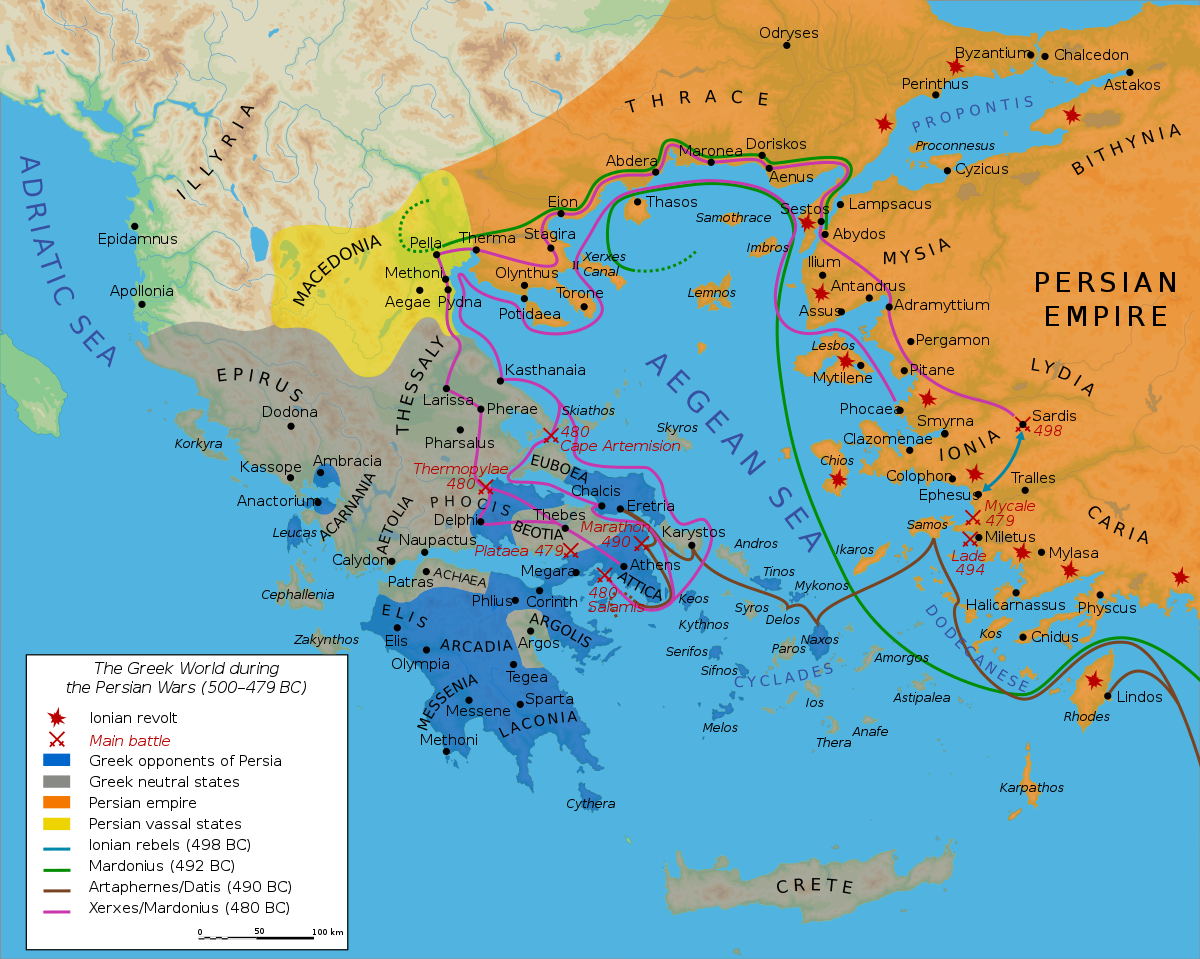It was under Cyrus (r.c. 559-530), who attacked the Medes and took their capital (Ecbatana, south of the Caspian Sea), that the Persians began a meteoric rise toward universal rule. Uniting his territory with that of the Medes and initially bypassing Babylon, Cyrus moved westward into Anatolia, absorbed the Lydian kingdom of the rich king Croesus, and conquered the Greek cities of Ionia along the Aegean coast. Next he moved east all the way to the borders of India, annexing as he went.
Instead of deporting whole populations, Cyrus allowed them to worship as they pleased and to govern themselves in their own way under his representatives. The fall of Babylon led to the Persian conquest of Syria. Cyrus’s son Cambvses
(r. 529-521 B.c.) conquered Egypt and died, probably by suicide, on his way home to put down a revolution, which his usurping brother-in-law Darius (521-486 B.c.) succeeded in quelling.
It was Darius who subdivided the empire into twenty provinces (satrapies), each with a political governor, military governor, and tax collector, and each allowed to maintain its religion and local customs. Royal agents crisscrossed the vast area from the Aegean to the Indus, collecting information for the king. Darius adopted the Lydian practice of coining money and introduced it into all his dominions. His highway system was superb, a great network whose largest thread was the royal road that ran more than sixteen hundred miles from Susa, Darius’s capital, to Sardis, the chief city of Lydia. It is likely that Darius personally introduced Zoroastrianism, the religion of Zarathustra, a Persian prophet who had died a generation earlier.
Zoroastrianism began as a monotheistic faith, proclaiming the one god Ahuramazda, whose identifying quality was his wisdom. The other divinities around him were not gods and godesses but abstract qualities such as Justice and Integrity, which he had created. It was the existence of evil in the universe that led Zarathustra to imagine that life was a constant struggle between a good spirit and an evil spirit, both subordinate to Ahuramazda. A wise person will ponder and then choose the good way; a foolish one will choose the evil way; the supreme spirit will reward the wise and punish the foolish.
Intellectual and abstract, lacking ritual and priesthood, early Zoroastrianism was perhaps too impersonal and rarefied for a popular faith, and it was modified after its founder’s death. By identifying Ahuramazda with the good spirit, the generations after Darius in effect demoted the supreme god from being the ruler over the evil spirit (Ahriman) to being a contender with him. The religion became dualistic, giving comparable power to good and evil, and revived elements of earlier polytheism, as old deities and ceremonies reappeared and a powerful priesthood asserted itself.

